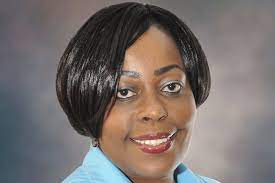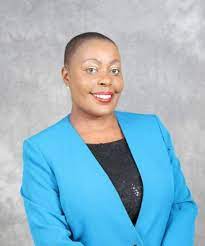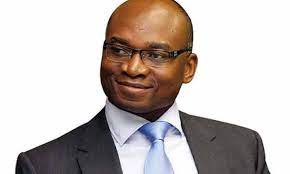Eve Gadzikwa – The Woman who defied Patriarchy Barriers
Business Leader

Eve Gadzikwa

By Tapfuma Machakaire 24/11/2022
Gender activists have argued that women in Africa still have a long way to go before they can get to a stage where they can be treated as equal partners with their male counterparts in competing for top positions in the corporate world.
This is because of the culture of patriarchy inherited from past generations, which entrenched stereotypes where women are regarded as vulnerable and fragile individuals who are less competent than men in many respects. The few women who make it to the top are often viewed with suspicion with most labelled either as immoral or being connected to some influential men.
However, some women in Zimbabwe have demonstrated that nothing can stop them from rising to the top of any organisation in the country. Dr Eve Gadzikwa is a goal getter who rose to be the first woman at the helm of three key institutions. In 2010 she was chairperson of the board of directors at Zimbabwe Stock Exchange, Director General of the Standards Association of Zimbabwe and chairperson of the Institute of Directors Zimbabwe (IoDZ).
In an interview with the Standard in November 2016 Gadzikwa said in a patriarchal society, “women are frequently perceived as being the weaker sex who make decisions based on emotion.”
She argued that women actually have the advantage of being emotionally very strong, naturally analytical, multi-skilled and multi-talented. “Women are able to multi-task across various disciplines, much to the admiration of their male counterparts. What is missing are matching opportunities to enable them to show their talents and unlock their full potential,“ said Gadzikwa.
She was appointed board chair Zimbabwe Stock Exchange (ZSE) in 2010. The ZSE is the official stock exchange with a history dating back to 1896. It opened to foreign investment in 1993 and the exchange has about a dozen members and 63 equities.
Gadzikwa landed the ZSE post just after the introduction of the multiple currency system in 2009. This was a time when trading activity on the Zimbabwean stock market was subdued and share prices were heavily depressed with some dropping to the level of fractions of cents.
Under the multiple currency regime, the Reserve Bank of Zimbabwe lost its ability to directly influence interest rates through its overnight accommodation window. The window is a monetary policy instrument that allows banking institutions in a short position to borrow money on a short-term basis from the Central Bank. This was a difficult time that required strong and decisive leadership.
Some milestones during Gadzikwa’s leadership include automation of the ZSE trading platform, formulation of new listing rules, and setting up of central securities depository. Gadzikwa stepped down at the end of her four-year term in October 2015.
She had also overseen the development of a framework for an alternative bourse for Small to Medium Scale Enterprises (SME’s) and the process of demutualisation of the ZSE.
It was under Gadzikwa’s tenure that the ZSE data portal was launched and projects that include the purchase, refurbishment and occupation of property in Ballantyne Park.
Speaking at her farewell function she said, “It is my strong conviction that with this solid foundation, the ZSE is poised to grow into a formidable national and regional force offering value adding products and services, which contribute to economic development of Zimbabwe and beyond.”
Dr Eve Christine Gadzikwa née Mandaza was born on 24 December 1964 in Marondera, Mashonaland East province of Zimbabwe. Her parents moved to Zambia, where her father worked as a miner in the Nchanga Copper Mines of Chingola and her mother was a nurse.
She did her primary education in Zambia at Hellen Waller School and early secondary schooling Fatima Girls High in Ndola. In 1978 she returned to Zimbabwe and continued her secondary education at St Johns’ High, Emerald Hill a catholic boarding school.
She later obtained a Marketing Management Diploma from the Institute of Marketing Management in South Africa (IMM). In 2004 she graduated with a Masters in Business Administration from the University of Nottingham (UK). Gadzikwa who is also a clinic scientist and a fellow of the Institute of Medical Laboritories and Clinical Scientist Council of Zimbabwe spent three years working as a consultant in medical testing and public health laboritories in several African countries and the United States of America.
For six years, she served as executive director of Zimbabwe National Quality Assurance (ZINQAP) Trust, a national Proficiency Testing organization.
Gadzikwa was appointed Director General of the Standards Association of Zimbabwe (SAZ) in September 2008. She is the organisation’s Company Secretary and Governance Champion. SAZ offers system and product certification services covering quality, food safety, Environment management and occupational health and safety and product certification.
In 2016 she became the 13th and first female President of the Organisation for Standardisation (ARSO)a continental intergovernmental standardisation body under the African Union headquartered in Nairobi, Kenya, a post she held until 2019.
“Being elected president of the African Organisation for Standardisation has been a humbling experience and an incredible honour. This appointment to a continental standards body and organ under African Union not only validated me, but also proved to me that I am good enough and that many other women are able to excel at what they are passionate about,” said Gadzikwa after her appointment.
As a philanthropist, Gadzikwa is passionate about investing in leadership and talent development. She mentors young executives, university students and talented women looking to reach their full potential. “As a woman operating in the corporate world, I have faced many challenges. However, I personally believe that self-doubt, insecurity and fear of the unknown are three major issues most women including myself face as they navigate their way up the corporate ladder,”she said.
A dark period in Gadzikwa’s life was going through divorce with her then husband and father of her two children Celestine Gadzikwa in 2014. Local media ran sensational stories with screaming headlines on the divorce case as if they were determined to destroy her image, but she survived the onslaught and moved on.
“I want to be remembered for challenging the stereotypes people often place on women and for believing that there is room for women at the top of the corporate ladder,” she said.


